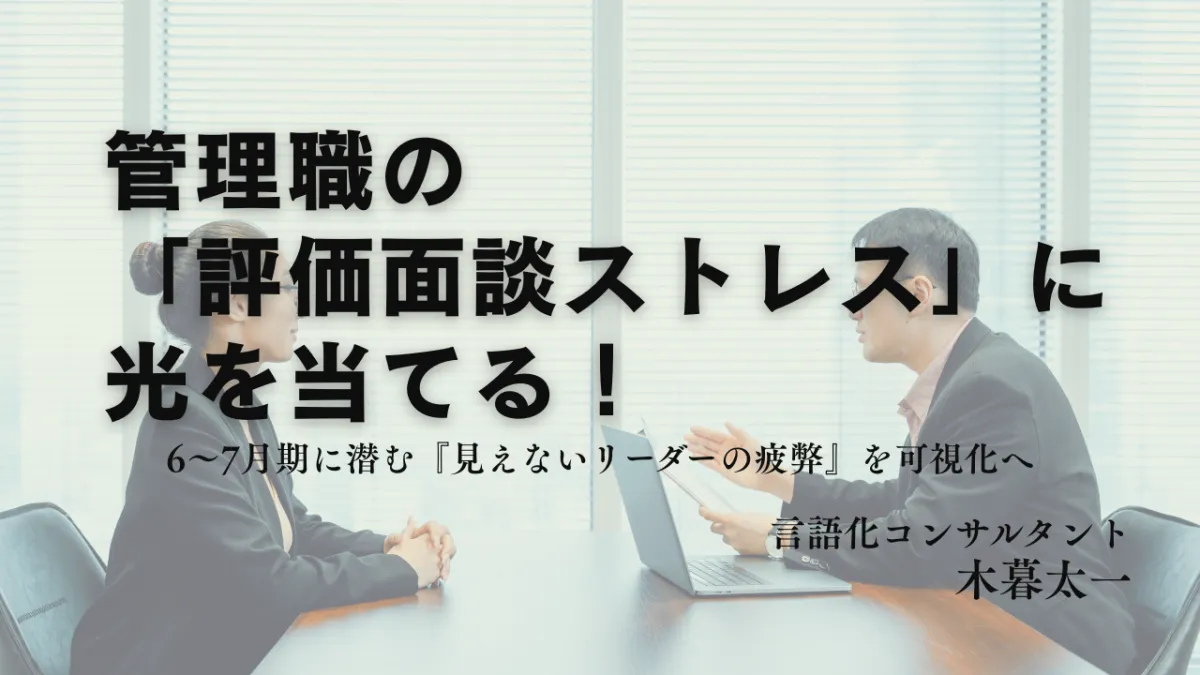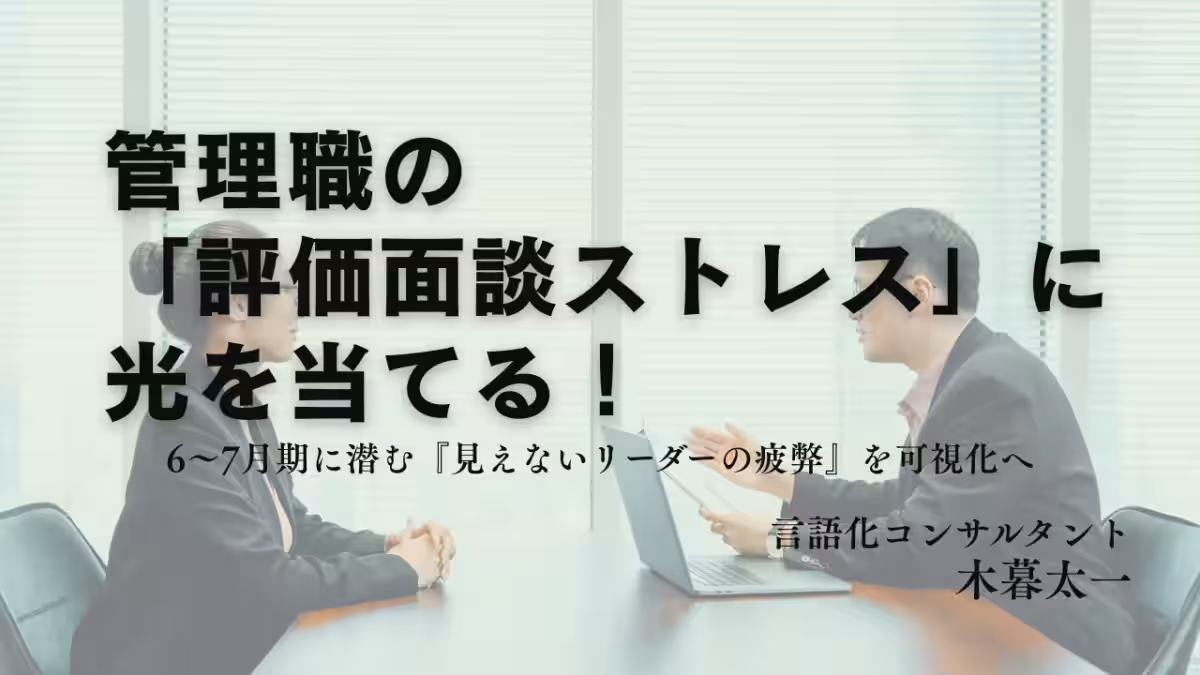

Shining a Light on Managerial Stress During Evaluation Meetings: Taichi Kogure's Insights
Understanding Managerial Stress
Managerial roles come with the heavy responsibility of nurturing subordinates and ensuring organizational success. Particularly during the evaluation meeting period from June to July, managers face intense pressure as they assess performance, deliver sensitive feedback, and discuss career paths with each of their team members. Unfortunately, this unique season also heightens the risk of intrinsic stressors that are often left unspoken.
In a recent alert issued through his social media, Taichi Kogure, a renowned language consultant and author of 67 books, draws attention to this often-overlooked 'Invisible Exhaustion of Leaders' that comes from the mounting emotional toll of evaluation sessions. The aim is to bring forth these hidden burdens and initiate a movement towards open communication and support within organizational frameworks.
The Silent Stress of Managers
According to a study by the Ministry of Health, Labour and Welfare, over 80% of workers experience significant anxiety, stress, and worries regarding their professional lives—managers are certainly not exempt from this statistic. They are often caught in a web of responsibilities: the pressure to meet targets, accountability to their subordinates, and the often conflicting demands from top management versus the reality of their team.
As organizations move towards various working styles, including telework, that demand adaptability in their management approach, the stress only compounds, leading to 'silencing stress.' Kogure emphasizes that in the delicate setting of evaluation meetings, managers feel an unreasonable pressure to appear perfect, causing them to suppress their own vulnerabilities and concerns. This internalized stress can lead to a decline in mental wellness, ultimately affecting the performance of both the individual and the team.
Furthermore, this silence can decrease the quality of communication with subordinates, resulting in lower productivity and higher turnover rates. The social media messages from Kogure will focus on this alarming trend and call for immediate cognizance and preventative strategies to tackle these issues.
Cultivating a Culture of Expression
To effectively prevent the emergence of silent stress, Kogure advocates for a cultural shift within organizations—a transition towards one where open verbal communication is the norm. He underscores the need for establishing psychologically safe work environments where all employees, particularly those in managerial positions, can freely express their thoughts and feelings.
Research shows that a robust support system and smooth communication among co-workers are critical for maintaining mental health in the workplace. By fostering a culture that encourages open dialogue, organizations could not only safeguard the mental health of managers but also improve the overall quality of relationships within teams, consequently enhancing organizational vitality.
The Language Program as a Solution
Kogure’s 'Language Program,' offered by the Educational Communication Association, seeks to dismantle the barriers posed by silent stress and improve communicative efficacy within organizations. It aligns with the Ministry of Health's findings, indicating that enhancing communication skills is a crucial element in mental health maintenance.
Key Features of the Language Program:
- - Dialogue Facilitation Techniques: Managers learn how to extract genuine feedback from their subordinates during evaluation meetings, while also effectively conveying their own concerns to higher-ups.
- - Questioning Skills Training: This enhances their capacity for self-reflection and deep exploration of both their emotional landscape and that of their teams.
- - Building a Safe Environment: Managers will receive concrete strategies to foster trust and a psychologically secure atmosphere within their teams.
Companies that have implemented this program report benefits that include increased communication activity from managers, improved engagement scores between superiors and subordinates, and a decreased turnover rate among managerial staff, thereby contributing to enhanced productivity overall.
For more information and enrollment, interested parties can visit this link.
Final Thoughts
To facilitate organizational growth, it is paramount to preserve the mental health of every employee. The ongoing pressure faced by managers, particularly during evaluation periods, is a critical concern that must be addressed. The insights provided by Kogure aim to ensure that management can voice their challenges freely and maintain a workplace environment conducive to 'words being spoken,' ultimately safeguarding not just managers, but the entire organizational ecosystem.
For interviews with Taichi Kogure or collaborative media inquiries, please visit this link.
About Taichi Kogure
Taichi Kogure is a language consultant and the representative director of the Educational Communication Association. With over 65 published books and reaching over 1.95 million copies sold, he captivates readers with his unique perspective. Throughout his career, he has been involved in over 200 corporate training sessions and consulting engagements annually, continuously supporting many business leaders.
Related Information
- - Learn more about the Language Program: Educational Communication
- - Official YouTube channel for tips on effective language use: Gengoka Switch
- - Instagram for daily communication tips: Taichi Kogure
- - New publication: Returning Clarity to Communication here.


Topics People & Culture)










【About Using Articles】
You can freely use the title and article content by linking to the page where the article is posted.
※ Images cannot be used.
【About Links】
Links are free to use.